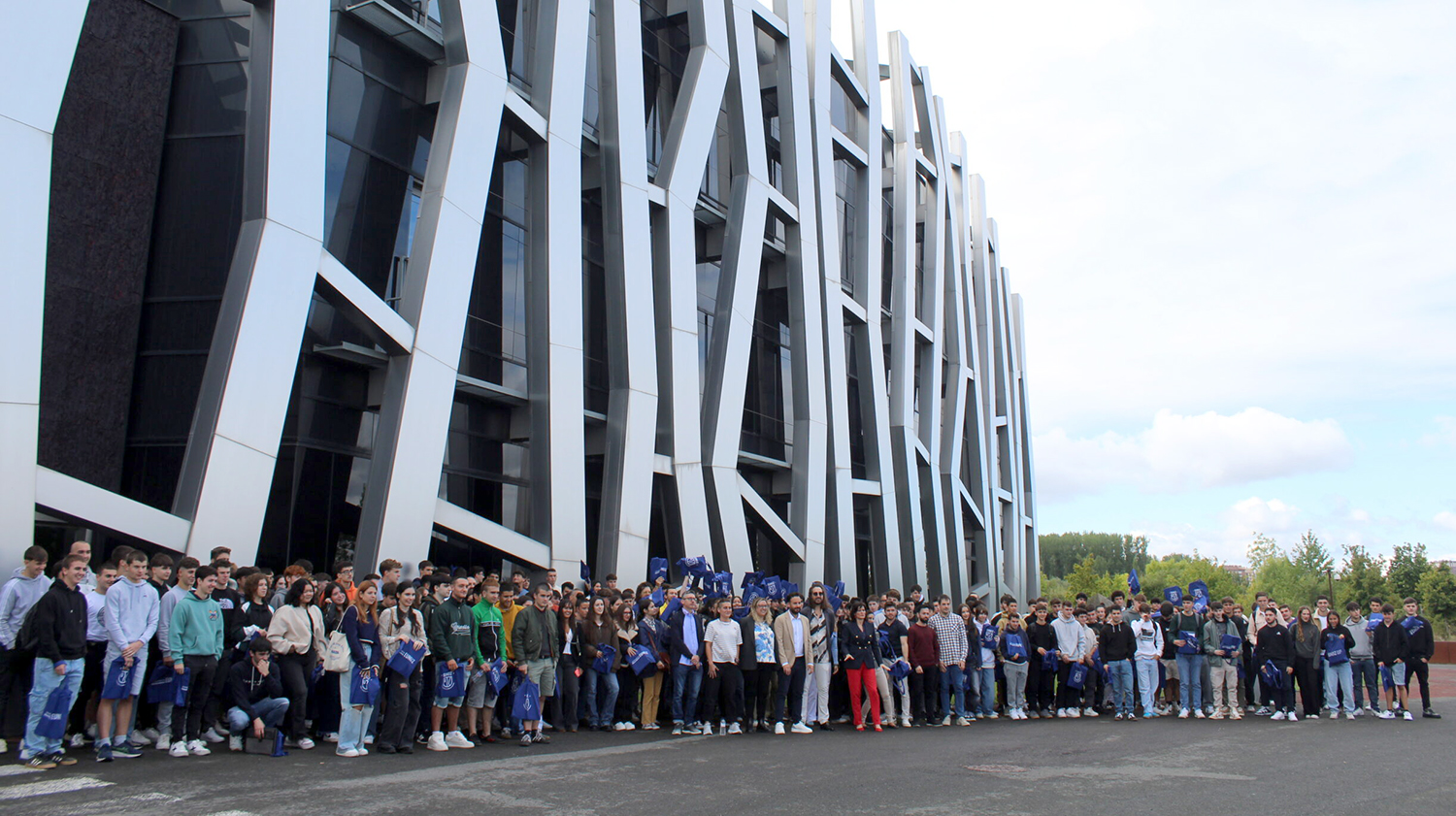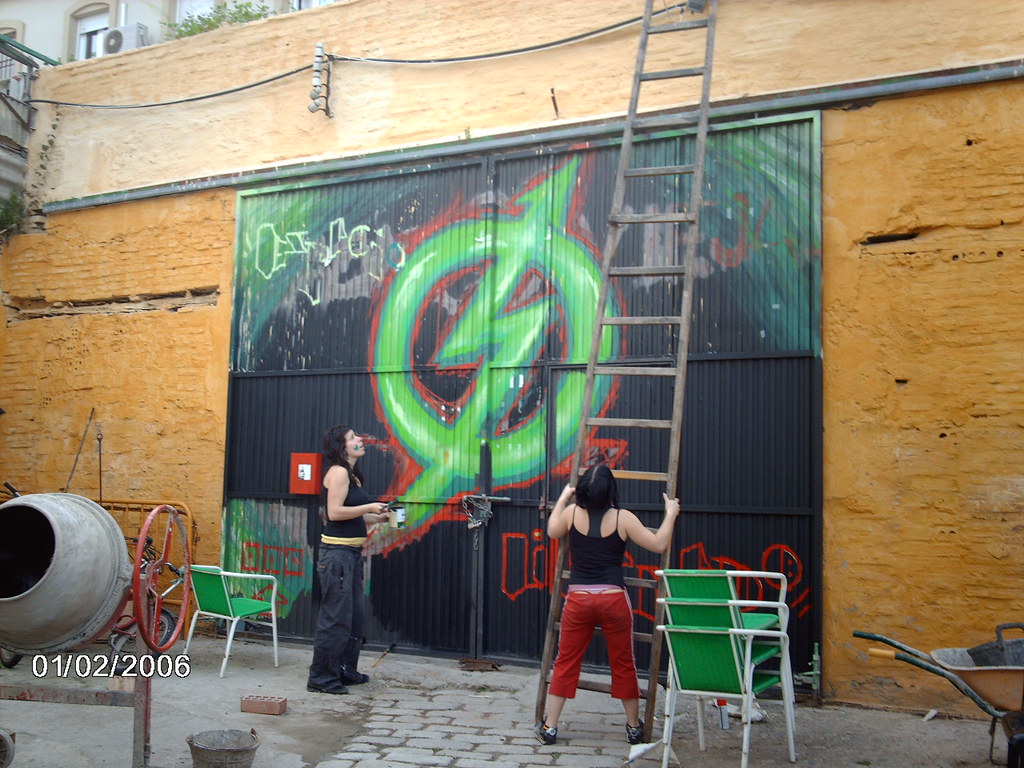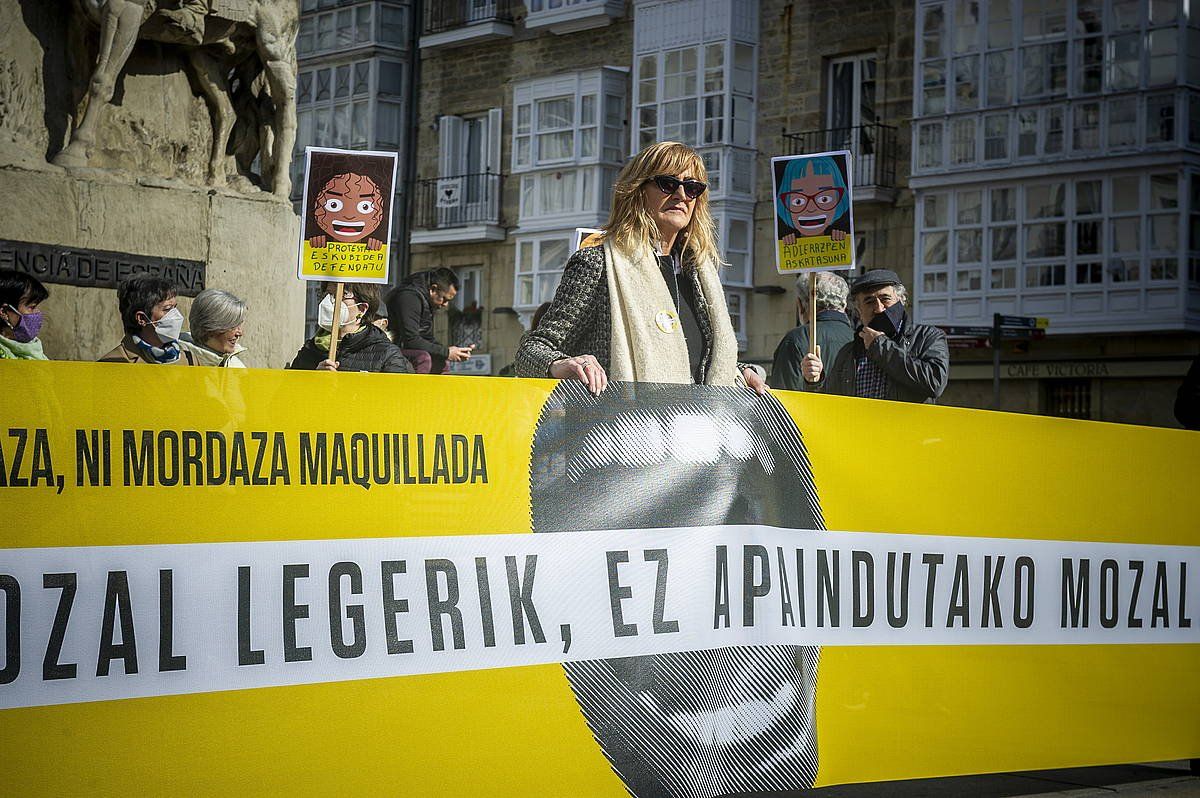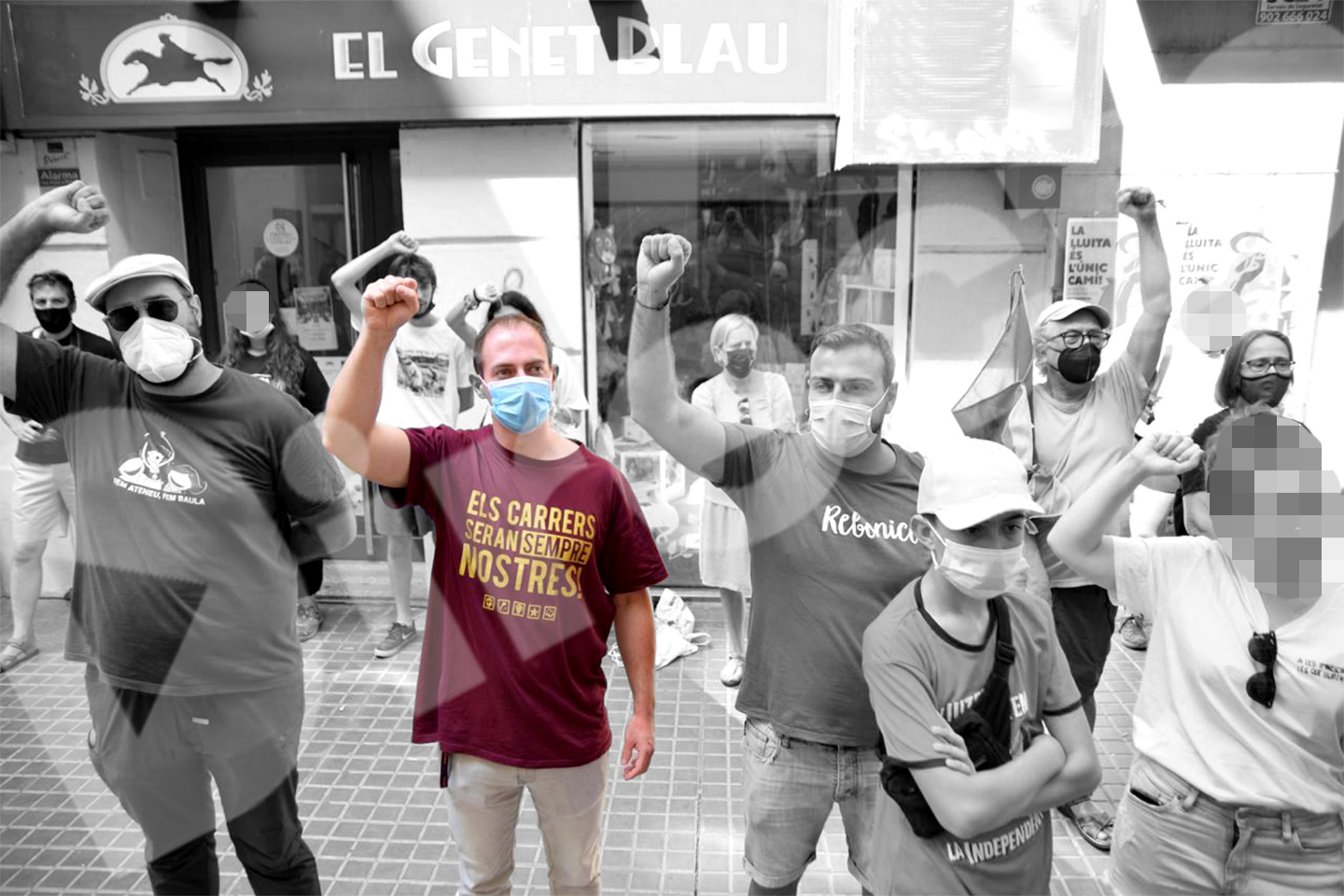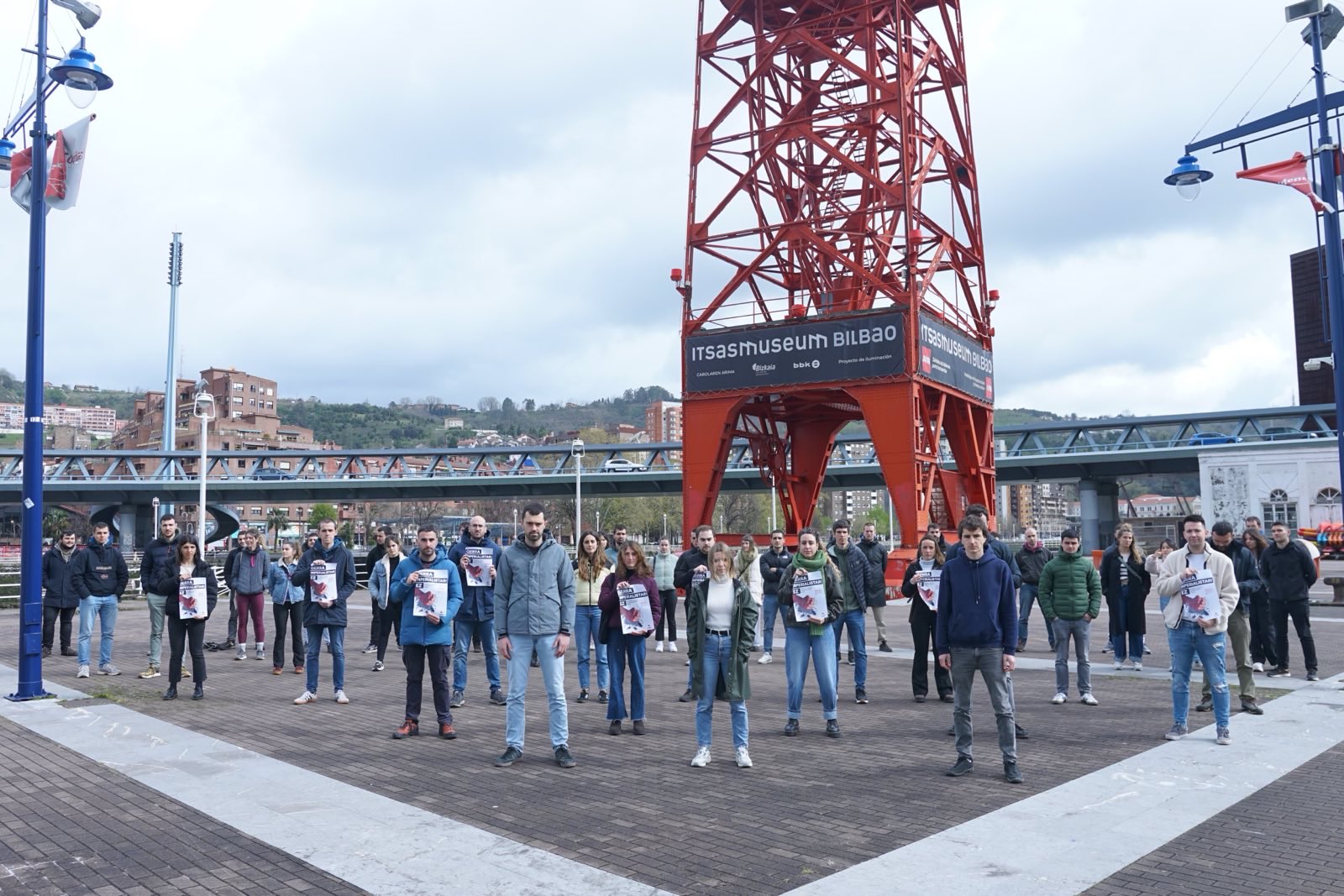Over the years he has published books on works, works or lives of people closely linked to the history, culture and political conflict of the Basque Country: Among others, Nemesio Etxaniz, Eusebio Osa, Txillardegi and Telesforo Monzón. This time Emilio López Adam. Why?
In the consumer society in which we live and in the current pandemic, among other things, the most important thing is to think about what we can buy now, think about what we can change now at home and calculate whether we have money for it. The past, at best, when we gossip. If Euskal Herria were a normalized people, much less bad!, but as our present is very mestizo, in the Basque Spanish or Basque French background – when mestizaje is voluntary it can be good, but when forced, no, it is important to look back to know where we came from and begin to understand why we are in this situation, to look forward, towards the future, with more awareness, with more Basque consciousness. They're works done with that central idea.
Besides contributing to the collective memory of Euskal Herria, what is the objective of the book?
Report on the position of Emilio López Adam. It reached maturity under Franco and is a reference of a certain position on the national and social axis, the national and social struggle. Its ideal is the confederation of libertarian municipalities. He is in favour of an Euskal Herria Euskaldun, but not of the Basque State or of any other state. For López Adam, the State is a means for a minority to take the absolute majority of votes. He is the thinker of the Basque libertarian revolution. Indicator and support of a determined and respectable position. Anyway, the fact that I make the book about him doesn't mean that I'm ideologically from the same string.
The book consists of three parts. What will the reader find in each of them?
The first part is called Memoirs of Political Violence. López Adam committed himself in 1963-1964 to feeling an ethical imperative against the oppressive Franco regime. The Franco regime was frightening. It was difficult and hard to get involved in the fight against him, but he had committed himself to it. In March 1967, the Fifth National Congress of ETA will be held in France. In the second part of the congress, in Getaria, he was appointed a member of the Ordinary Assembly. He abandoned his medical studies in Valladolid and devoted himself with total dedication to proselytizing in favor of the institution. A year in the South and a half in the North. In autumn 1968, threatened in a repressive atmosphere following the assassinations of Pardines, Etxebarrieta and Meliton Manzanas, he moved to Brussels, where he remained until the beginning of 1976. With the death of Franco -remembering on 3 March 1976, the fights of then in Vitoria-Gasteiz and five killed by the police -, Laia moved around Ez, especially as an intellectual reference for the self-employed. All of them are belittled in the first part of the book.
The second part is the relationship between revolution and violence. López Adam has separated the different phases of ETA well. In each phase he analyzed whether he had the adhesion or partial acceptance of the locality, of a sufficiently representative population sector, valuing the actions of the armed organization. He has compared his analysis with the French and American analysts. It can be the most controversial part. The courage and responsibility of López Adam is not lacking, and there is no doubt that he has made significant analyses on a subject that has marked us a great deal, that is worth reading and reflecting.
The third part is a series of ideas and references for the Social Revolution. There are several paragraphs in it, and depending on the interests of each one, some more interesting and memorable. In the so-called nation and state, for example, 40 years ago I wrote that the Basque bourgeoisie did not want to create a Basque state, which sufficed with a statute of autonomy. He was right. Now we see it very clear: 40 years ago yes? Many of us thought it was a matter of time and that we would have more and more autonomy to achieve independence. Today? And in general, in the era of the power of the multinationals, he said that democratic states were a repressive system to keep the popular majority in the hands of a minority, all under neoliberalism. In the West, and in the East, it also dominated bureaucracy. The workers and the Basque people’s classes were to fight for a libertarian ecological communism, not by any state, nor by the Basque State. As has been said before, various and interested parties.
In the preamble you say that you have only worked part of López Adam’s work in the book. In fact, black's work is long and robust. Has it been difficult to make that choice of content? Why criteria did the selection?
I wanted to make more informative than an academic book. That doesn't mean it's not deep, or it's a light book. Reading this book takes time and effort for the reader, but I think it will also give its small price to those who read it. At first I made a more extensive text. I studied and commented on two other books by López Adam, Basque nationalism and social classes and the Basque Country 1984, but it seemed to me that they were not essential for dissemination, and they have been left out in the latest version. It would be nice for historians, for example, to make a constructive critique of López Adam's historical books. For example, books: Basque Nationalism (1876-1936), Basque Nationalism in exile (1936-1960); and From Carlism to Bourgeois Nationalism.
What would I highlight from Lopez Adam's work? Theory and praxis go hand in hand in their work…
Yes, it has been very committed in the last almost sixty years, and it still follows. It has not done an easy job, and in that sense it is admirable. In theory he has worked more, but in most cases he has been very closely related to the practice. I hope he will continue to work.
Have you been the protagonist of this project – López Adam?
Yes, and to me that has been a new experience, because so far I have always done research on the dead. Having the protagonist next to you is a great help not to get too footed. It feels more responsible, at least I have felt it. I confess that he has let my hands go and that the defects are truly mine. On the other hand, he too has been quite happy with the book, as he said politely to me. I am very reassured by this.
Why is it important to look at the past?
A Spaniard, a Frenchman or an English or a German have no problem knowing what they are; we do. Just go to Hendaia: Do you Spaniard? I am Basque. Yes, but the Spanish Basque? Basque French? To strengthen identity it is very important to become aware of the past. I will not delay in vain: in our case, opening all the doors to cultural and linguistic assimilation is not knowing anything about the past and not interested anything. And I see a great danger of that happening.
In the third part of the book you deal with other issues or issues related to the future. Why?
The third part is a basket basket made up of different themes. I didn't know which section to put a common txapela, and I've baptized it with the name of ideas and referents for the Social Revolution. The opportunity of the social revolution occurs very rarely in history, here and everywhere – we live it between 1975-1978, but it was lost, it was forbidden – and it still does not seem that we are for it, although the pandemic lasts a long time, the concern can increase, and who knows! But the truth is, I don't think we're on the threshold of social revolution. In any case, López Adam has sown the seeds and there they are waiting to pasting them in a well fertilized field, in the search for suitable times.
He has also just published a digital book on concerns and desires. What did you get there?
Most of all, most of the articles I've published on the Zuzeu blog over the last year and a half, and those I've written around a discussion. In this blog every day articles are published in Euskera, and often there are discussions, sometimes with more than a hundred comments; and as I have already said, I have included in the book those listed in one of them. So far I've written more complex, I don't know how many writings I read (books, articles and so on), and I've focused the information in the paragraphs and I've pulled the writing out in my head. For the blog mentioned, the articles must be quite short and sparks, both for the best and for the worst. For the better, because they can reach more people, and for the worse, because it's easier to be reckless in opinion, to fall into the reckless stomp. It seems that writing two pages is easy. No, it is not easy, at least if you are looking for a minimum of seriousness.
Yes, as has already been said, they are lighter, less complex, and I hope they are kinder to read, although some can be unpleasant, as has happened in the blog, especially when it comes to religion and feminism, although there are few. That is why disputes often arise: how many different heads!
He has selected mainly articles related to Euskera and politics. Why?
This question allows me to say that a language is a social phenomenon, that it is much more than an instrument of communication, and that although the politics of political parties should be at a certain distance from games, it is, at the same time, very political.
The most important instrument for uniting plural Spain is probably Spanish. And to unite France, it goes without saying, is French. Why is the Basque Country not today an instrument of social cohesion in most of the Basque Country? From the basics, today in some homes in Azkoitia and Azpeitia, meetings will be held in Basque. Perhaps in less time than I expected. In Hernani, under my house, meetings in Basque cannot be held naturally, and they are not held. The tool of understanding at home is Spanish. Spanish is the instrument of social cohesion. That's in a Hernani neighborhood, in other neighborhoods and towns, and let's not say in cities. This is an entirely political problem. Not party politics, but national or popular politics.
Why did you decide to collect all that in a book?
On social networks, in my case, I have a lot of ignorance and contradictions. Needless to say, they are widely used. Are they effective? I doubt that they are too transitory. Surely the age factor also has a lot to do with my thinking or vision. At the end of 2019, Zuzeu’s journalists confessed on the blog that it had somehow been a revelation of the year in articles and debates. So I came up with the idea. Why haven't I put most of them together in a book? And why not take it out as a digital book? Maybe the digital book has a future! But I love paper more, and I read more on paper. How many contradictions!
The book, entitled Concerns and Desires, can be read on the Booktegia platform. Available on the network. Do you think this type of media is important?
The importance of such platforms cannot be underestimated. Digital books have a lot of downloads, you just have to take a look at the Booktegia to realize it. But do the reader read in depth or die? I don't know. In any event, I see the evidence as more useful than harmful.













